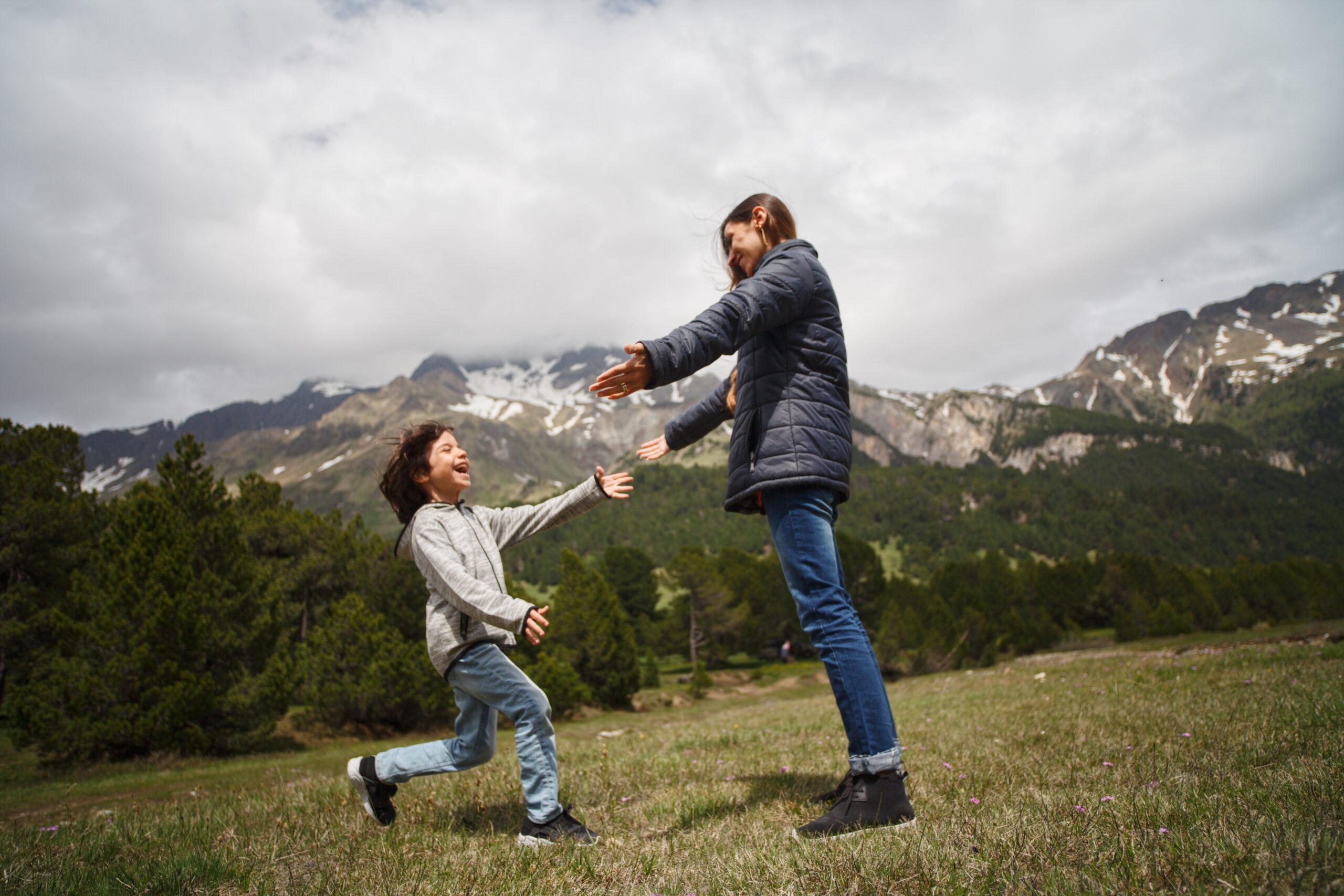 One day when my daughter was about eight, in a really lovely sweet moment where the connection was really beautiful between us, she began to express to me all the reasons why she really appreciates me. And to my surprise, she said “because when I’m angry and I tell you to go away, you stay with me and keep looking after me”.
One day when my daughter was about eight, in a really lovely sweet moment where the connection was really beautiful between us, she began to express to me all the reasons why she really appreciates me. And to my surprise, she said “because when I’m angry and I tell you to go away, you stay with me and keep looking after me”.
I knew she was particularly referring to an experience a couple of days earlier when she suddenly became enraged with me and her big brother over something and stormed out of the room banging the door. It seemed clear to me that it was one of those last straw moments after a stressful couple of days, now being triggered by a misunderstanding. It was such a huge outburst and I knew there was something very big going on for her.
I went down to her room to find that she’d buried herself under the covers in her bed and shouted: “go away!”. I told her I was just going to sit on the floor beside her bed and look after her, she again shouted “go away!”, I moved back to give her a bit more space and said “you seem really upset with me honey”, to which she blurted out “no I’m angry with daddy!” and then she burst into big tears (the tears always herald the healing). It all came out that she was really angry about her dad going down to Auckland (three hours away) that morning.
If your child continues to insist that you should leave the room, it can be a bit tricky to identify if they’re communicating that they don’t believe and trust that your heart is open to them at the moment. They may be seeking lots of reassurance that you truly are there for them. Or they may be finding the interaction so distressing that they truly do need some space, but it’s still important to not cold shoulder them. For a bit more on this complex situation, read “Go Away! What to do when your child won’t let you connect“
Unexpected changes are really difficult changes. She was especially angry about it because he’d been away for 2 days unexpectedly earlier that week. In response to an emergency situation further up the country, (dozens of beached whales that needed help urgently), he left with my son to go on a rescue mission to try and save the whales. The separation because of the trip affected her more because it was very sudden and she didn’t have time to get used to the idea. Her dad told her he was leaving, rushed around gathering some things together and even the goodbye was a hurried one.
Another stressor was that she was fighting a cold and yet another stressor was that we had a visitor staying with us, the routine was all a bit out of kilter and she’s a girl who really likes her routines. In the bigger scheme of things none of these things in themselves were such a big problem, yet it all added up to being a lot to deal with in one week and now she needed help getting back to a calm, balanced and settled feeling.
Once she’d had big cries and some big hugs from me and I was confident that she’s had a really good release, I asked if she wanted to ring dad, which she did and shared her feelings with him. He listened and validated her feelings “you’re really missing me, you didn’t want me to go did you, you wish I was there with you now, you really wish mum could drive you to Auckland to see me right now” etc. Once she’d felt heard and accepted by me and by her dad, she was settled and at peace again and there wasn’t another mention of missing dad over the weekend. If there had been more, I trusted she would have let me know (in one way or another).
When we can be with our child and truly listen and accept all their feelings, they can wrap our acceptance and warmth around them like a blanket and make their way back to balance and peace again.
What’s wrong with distraction when a child is upset? It’s easy to think that we need to help our children feel better by distracting them with suggestions of a movie, the offer to buy a toy, yummy food, anything with sugar is often a go to for parents who want their child to stop crying, yet this often leaves the upset feelings still sitting beneath the surface unresolved, while conditioning them to rely on these things when they’re feeling unhappy. Crying on the other hand is such a healthy cleansing process that truly releases and resolves difficult feelings when the child (or adult) feels heard and not suppressed or shamed for their expression. This is how we help children develop emotional self regulation, hence resilience. Distractions train children to seek and become highly dependent on distractions and robs them of the opportunity to really feel the uncomfortable feelings, practice expressing those feelings and working through them to discover that the cry and vent and expression and empathy was exactly what helps them feel happy again. This is the kind of emotional muscle building and journey of returning back to peace that lies at the core of true peace and emotional maturity.
Being positive isn’t always what’s most healthy or needed. Parents also often believe they’re being kind by trying to help their child “look on the bright side” or generally adopt a more positive outlook. In this case, it might have sounded something like; “but big brother, you and I are going to spend lots of lovely lovely quality time this weekend …” or “most other weekends we have lots of fun as a family, try thinking about all the good times we’ve had in the past” or distracting from their sadness with “let’s you and I go out and have a special you and me lunch”. Children (and adults if we’re honest usually!) experience attempts to “help us” see the bright side (especially if the feelings haven’t been given enough expression, empathy and validation) as a criticism of our feelings, a message of; “you shouldn’t be sad, you shouldn’t be angry, you should be more positive, show me how brave you are”. This message of emotional repression is especially strong when parents then enthusiastically reward their child for coming out of their upset “yay you’re happy again, let’s have some fun!” or particularly risky messages (with such prevalence of eating disorders and sugar addiction among young people) of “oh look at that big smile, ice cream always makes you happy doesn’t it!!”
Accepting your child’s feelings includes accepting their anger. Children are often told by their parent that they’re allowed to feel and show all of their feelings, yet when their child reacts with anger, parents become very angry at them, which is rightly received as a conflicting message that it’s not okay to be angry. Yet anger is an emotion that’s difficult for children and they need and deserve our compassion. Even if the parent needs to express a limit to a destructive expression of the anger, it’s still important to show care and acceptance of the feelings; “I can’t let you knock and break things, but I’m even more concerned about how you’re feeling, tell me all about it, I’m listening.”
Anger generally hides sadness, fear and vulnerability. Often, before the child can release their more vulnerable feelings of rejection, fear, loneliness and sadness, the first layer of healing will be an expression of their anger; “you’re stupid! I hate you! Go away!”. The child is saying “I need you to accept my anger before I let myself become vulnerable with you.” In a way they’re testing you, but not out of manipulation, it’s a way that we humans negotiate emotional safety when it’s difficult to be vulnerable.
Parents can’t always become centred and present enough to be there for their child, sometimes they need to take some space to bring themselves back to a more settled state, in which case it’s good to let your child know that you want to become more calm and be there for them, but you need to take a few minutes to become more calm first.
You might also like to read:
Go Away! What to do when your child won’t let you connect
Aggression – why children lash out and what to do

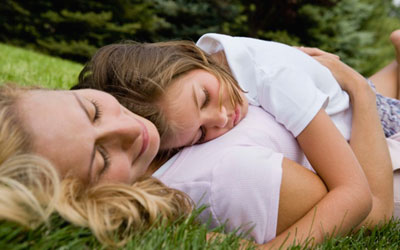
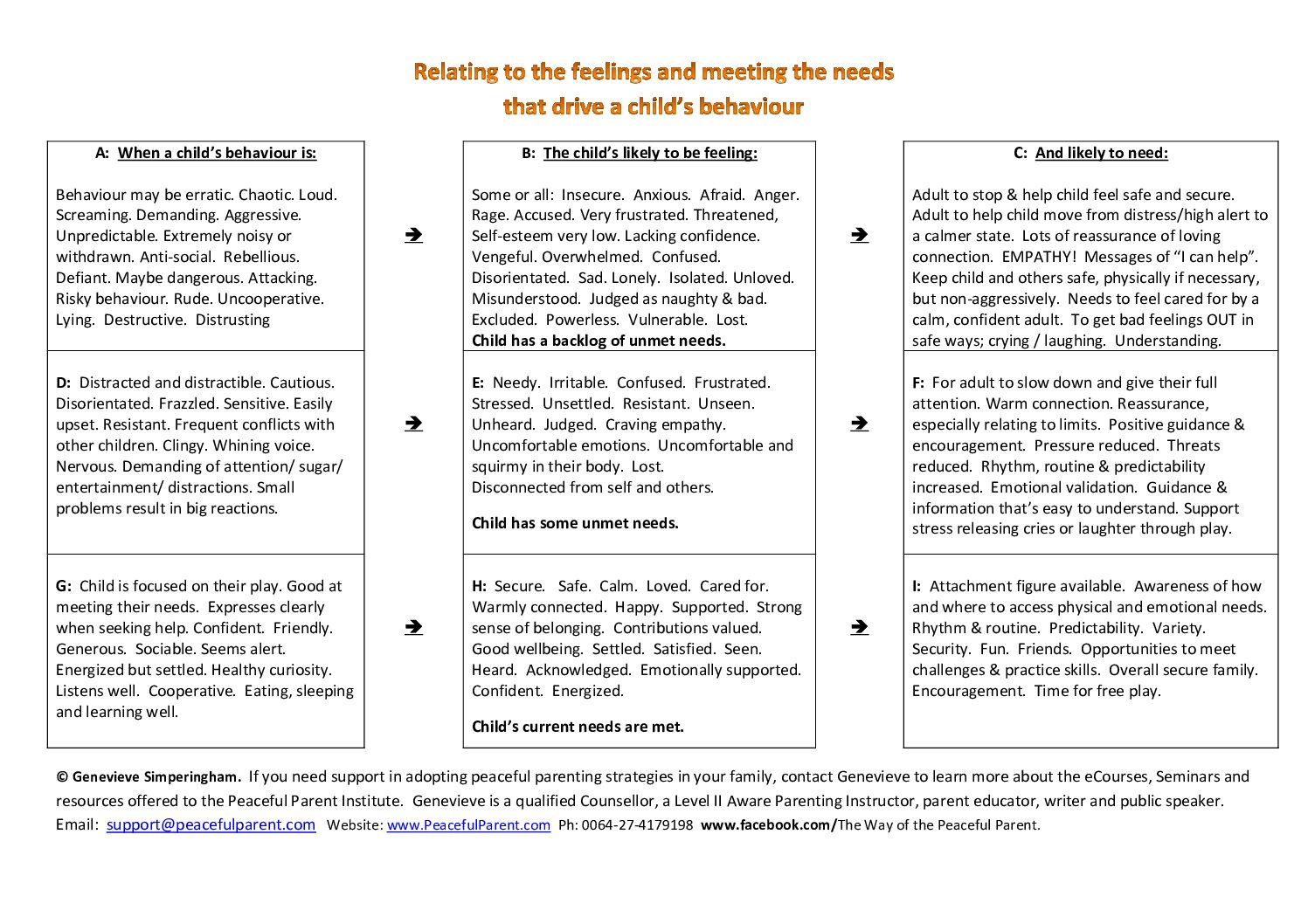


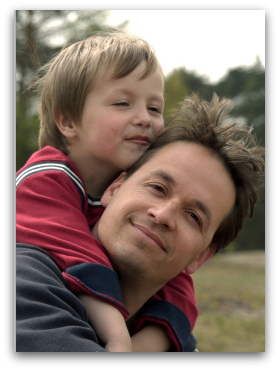

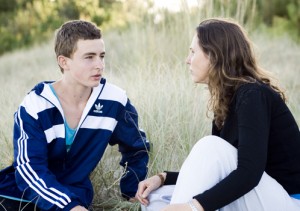

[…] to not be parenting properly. I have been known to sit down on the floor in the supermarket with or near my son who is having a big emotional […]